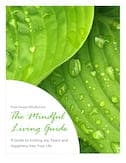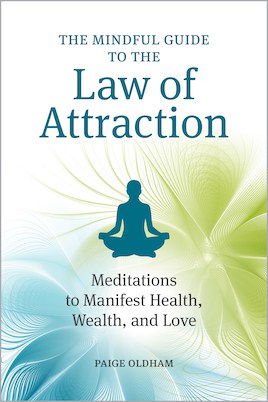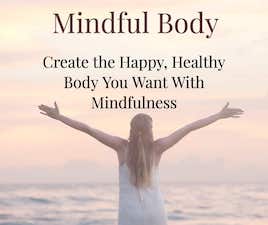What’s the purpose of life? It’s THE big question that we all ask. What’s the point of all this? Why are we here? What are we supposed to be doing with our lives?
We ask these questions hoping THE answer drops in our lap making everything okay. We humans have a control issue around this whole “purpose” thing. When we have an answer, we feel like we don’t have to go any further, we have control over the issue and we remain the supreme being.
Unfortunately, having answers, especially to these kinds of questions, doesn’t mean a thing in terms of control. As always, the only thing we can control is our actions. We can’t even control our thoughts and emotions. Have you ever tried? They just seem to bubble up constantly, and there’s little we can do about it.
Having an answer actually creates a bigger responsibility around doing something about it. If you know what your purpose is, you have an obligation to the Universe to fulfill it.
While there’s no right answer to the “purpose of life” question, Dan Millman, author of the classic, Way of the Peaceful Warrior, believes that there are four purposes. He lays them out in his book, The Four Purposes of Life.
 It’s easy to distance the overall purpose of your life from everyday life. In Dan’s book, he shows how everyday life is the essence of your purpose. There’s no other way to express your purpose than in how you live each day.
It’s easy to distance the overall purpose of your life from everyday life. In Dan’s book, he shows how everyday life is the essence of your purpose. There’s no other way to express your purpose than in how you live each day.
The purpose of life is a life of purpose. ~Robert Byrne
We all want to be happy. We’ll go to great lengths to get what we think will make us happy. As I’ve written about often, happiness is a choice, regardless of our external environment.
Once you’ve decided to be happy, then what?
“Even more than a happy feeling, is a clear purpose – a meaningful goal or mission that connects us with other human beings. As Viktor Frankl wrote in his book Man’s Search for Meaning, this fundamental need for purpose and direction may be as important to our psychological growth as eating is to our biological survival.”
Without a “why,” we don’t know what to do or how best to do it.
The four purposes that Dan delves into are:
Learning life’s lessons: Earth is a school and daily life is our classroom. Our daily challenges bring learning, growth and perspective.
Finding your career and calling: The service you provide in the world can become a meaningful path of personal and spiritual growth.
Discovering your life path: You have a hidden calling that you’re here to explore. Your strengths and the challenges you face highlight a deeper mission you’re here to fulfill.
Attending to this arising moment: This brings the other three purposes into focus and down to earth. It’s the essence of living mindfully.
Although Dan describes each of these separately, in my mind, they’re all different aspects of the same purpose. By living mindfully, learning life’s lessons and discovering your path by learning more about yourself, you find your career or calling and practice that calling while you live mindfully, learn more lessons that you incorporate into your path. This leads to subtle growth and changes in your career or calling. It’s a never-ending cycle of learning, growth and sharing.

Learning Life’s Lessons
I’ve learned the hard way that we’re here to learn the lessons of life. It’s impossible to ignore them.
If you think that you can escape this, think about the issues in your life that keep repeating themselves. You feel like you’re stuck in a loop that you can’t extricate yourself from.
If you don’t learn from these experiences and challenges, the Universe has a way of making its point by hitting you harder and harder with the challenge until you get it. Now is a good time to start listening and stop trying to control.
In the school of life, there’s one basic rule: actions lead to consequences (and lessons, if we’re open to them).
Within the school of life, there are 12 required courses, according to Millman:
- Foundations of Self-Worth: Getting Out of Your Own Way
- Roots of Will: The Practice of Self-Discipline
- Well-Being: Approaches to Health and Vitality
- Money and Values: Establishing Stability and Sufficiency
- Exploring the Mind: The Nature of Your Inner World
- Introduction to Intuition: Accessing Subconscious Guidance
- The Nature of Feelings: Achieving Emotional Freedom
- Fundamentals of Courage: Confronting Our Fear
- Knowing Yourself: Finding Wholeness in the Shadows
- Your Sexual Life: Understanding the Pleasure Principle
- The Mastery of Love: Awakening the Heart
- Service and Meaning: Completing the Circle of Life
What have you accomplished in each area? What tests have you taken and what lessons have you learned?
Finding Your Career and Calling
When you think about the “purpose of life,” you’re usually thinking about what your career or calling should be. Dan differentiates the two.
Your career is “a service you perform – trading your time, effort, attention, knowledge, skills and experience for a salary or other income and benefits.”
Your calling “is a personal interest, attraction, inclination, drive or passion that’s usually of a higher order. It’s not something you want to do, but rather something you need to do.”
While you may do the same thing for your career and calling, it’s quite common that these are played out in your life in different ways.
Figuring out what’s right for you requires some deep self-knowledge. Take some time at various points in your life to ask what your talents, interests and values are. These may change over time.
For all of the 20-something’s trying to figure out what to do with your life, take this advice:
“Decision making is a fundamental life skill, and (as with choosing a life partner) your career choice is one of life’s major decisions. Decisions demand that you come to know yourself. Otherwise, you may make the right choice for the wrong person – the one you hoped or believed you were rather than the one you are.
“There is no best career – only the best one for you at a given time in your life. There are both satisfied and dissatisfied people in medicine, plumbing, hairstyling, law, sales, teaching and every other line of work. Life is an experiment, a laboratory of self-exploration. So, until you find a truly satisfying vocation, just get a job. Choose the best option available now. Meanwhile, stay open to new opportunities, until you find a career or calling you are ready to commit to for a significant period of time (not the rest of your life). Today, it’s not unusual to go through several careers in the course of our working lives.”
Discovering Your Life Path
This purpose assumes that we’re each climbing a mountain toward our highest potential but by differing paths. Dan has put together his Life-Purpose System that uses a birth number derived from your date of birth. You can discover your own birth number and the related messages, challenges and lessons at www.PeacefulWarrior.com and clicking the Life Purpose link.
“Your birth number represents the path you are here to ascend – it’s an uphill climb – so what you are here to do isn’t necessarily what comes easiest. In fact, your path brings special challenges as well as special potential. As you overcome the hurdles, you experience the benefits.”
Attending to This Arising Moment
With all these lessons to learn, paths to follow and experiences to have, things can sometimes feel overwhelming.
Know that you can always handle this arising moment.
Now is the only time you can make a choice, feel a feeling or experience anything. In the next moment you can make a new choice. Everything is always changing in each moment.
You make a choice with the assumption and expectation that things will be a certain way. It’s pretty likely that things won’t be that way.
“There’s no point in resistance or regret. You have to shift your mental course instantly, look again, freshly, and address what is here and now, in this arising moment.”
Forever is composed of moments. ~Emily Dickinson
And this is the essence of mindfulness.
“We do things all the time – we do the dishes, do the laundry, do the shopping. But few of us practice. The key difference between doing and practicing is this: When you practice an action, you aren’t merely repeating by rote but rather are striving to improve or to refine whatever you are doing.”
“When you practice all that you do, your attention naturally returns to each arising moment. You step into the flow. You enter the zone.”
“Practice whatever you do. Notice the small things – the subtle shift of posture that relieves stress, the relaxing breath, the act of remembering to smile for the pleasure of it.”
“Practice that in all you do, and your life will change for the better.”
What To Do Next
In the end, we’ll never have life all figured out. Humans have been around for thousands of years, searching for answers. We’ll continue to search until humans are no longer around.
What can you do to make your own life more meaningful?
- Take the time for self-discovery on at least an annual basis. What do you love and hate? What are your core values? What have your experiences throughout your life taught you? What are your beliefs? Are they true for you?
- Use what you learn from self-discovery to shape your decisions. Follow your heart and intuition with your career, calling or both. Nothing is forever. You can always make a new choice. Follow your values.
- Approach everything you do as a practice. Notice the details. Practice with the intention of improving yourself in every aspect. Be present. Notice the lessons you can learn from your experiences and results.
There are no right or wrong answers to any of this. No one can give you the answers. It’s up to you to learn, grow and share what you learn.
Life is a series of experiences. There’s no failure. There’s only experimentation and learning.
What have you learned today?
Dan Millman, a former world champion athlete, coach, martial arts instructor, and college professor, is author of Way of the Peaceful Warrior (adapted to film in 2006), and numerous other books read by millions of people in 29 languages. Dan teaches worldwide and has influenced people from all walks of life, including leaders in the fields of health, psychology, education, business, politics, sports, entertainment and the arts. Dan and his wife, Joy, live in Northern California.
Visit my Recommended Resources page where I post the latest list of books, programs, and products that I’ve found to be particularly helpful in growing your mindfulness and meditation practices.
Create the life you want: Combine the law of attraction with mindfulness
The law of attraction suggests that our positive or negative thoughts bring about positive or negative experiences. My latest book, The Mindful Guide to Law of Attraction, pairs that belief with the powerful practices of mindfulness. Through intentional breathing, writing, and engaging, you’ll hone a method for manifesting health, wealth, and love―the elements of happiness.
Let the law of attraction work for you by adopting its basic steps of identifying and visualizing the things you desire. Then use 45 practical meditation techniques included in the book to achieve awareness. By concentrating your positive energy on obtaining your wants, you’ll give yourself permission to receive them.
To your happiness! ~Paige

You can find this book at Amazon, Barnes & Noble, Books-A-Million, and Indigo.








 The Mindful Living Guide
The Mindful Living Guide




Your bolg inspired me a lot, and I realized my own purpose of life after reading my article. It is fortunate that I have an opportunity to find your blog and read this great article. Right now, I am learning life’s lessons, and I believe that the lessons can let me be a better person:)
At this particular time in my life my mind is very much in the future and I have to keep reminding myself to live in the present. It is not easy as I am going through the planning and the arranging of a change in my career. I do intend starting a meaningful practice in Mindfulness and just need to dedicate the time to do so.
This was a great read and I have saved it to keep coming back too, time and again.
Great intentions Stewart! To start any meaningful practice, begin with baby steps – maybe 5 minutes a day. Too often grand plans go out the window if you try to take on too much too soon. With a big career change happening at the same time, be gentle with yourself. All the best to you!!
Hello Paige ma,am,
Glad to meet you here.. 🙂
Wow what an important post ma,am. I really like this article what’s is the purpose of life?. This four purpose are more interesting and beneficial to understand the purpose of our life.
This is one of the excellent article for me. Each and every points are more clear for me. Deep knowledge which is described here is more beneficial for me.
Thanks for sharing such an amazing article.. 🙂
Have a good day.
– Ravi.
Thanks so much Ravi! I thought this book did a wonderful job of bringing such a “big” question down to day-to-day reality.
I remember reading The Way of the Peaceful Warrior way back when Paige and this sounds like a book of an entirely different nature. And one I need to put on my reading list (which grows ever longer!)
It tends to boil down to ‘Know Thyself’ really. And it’s so important if we want to live a happy, rich, fulfilling life.
Thanks for this super review.
I remember reading Way of the Peaceful Warrior as well. Dan refers back to those early encounters from that book throughout this book to make his points and it works well.
Yes, it’s all about knowing yourself. If you don’t know what makes you happy and feel purposeful, it’s hard to make it happen.
This is such a rich review, Paige. I especially like this twist that our purpose is in everyday life and not somewhere out there, just out of our reach. Getting this can remove so much discontentment from our life.
I love that you picked up on that nuance Sandra! It’s so important. It’s that constant feeling that where we are isn’t the right place to be that creates such unhappiness and unworthiness.
I love the quote: “How you do one thing is how you do everything.” It brings all the “big picture” stuff down to the present moment. How you live each day determines your purpose and life.
Some great tips in there around this topic. I think the suggestions around ‘attending to this arising moment’ are especially relevant for me, as I have a tendency to be in the future all the time, making plans! Thanks for this (and I thought The Way of the Peaceful Warrior was a great film – I’ll have to get this book!)
My mind is often in the future as well, setting plans and intentions. My mindfulness practice helps me to come back to the present moment to see if what I’m doing now aligns with those plans and intentions. If not, it’s time for an adjustment.
Looks like a book I need to read! I’m with you, Paige. I also think they’re all different aspects of the same purpose. I’m in the “Learn Life’s Lessons” phase right now.
Debbie,
I feel like I’m constantly in the “Learn Life’s Lessons” phase. Just as I learn a lesson in one area, a new one pops up somewhere else. It’s a constant cycle of learning and growing.